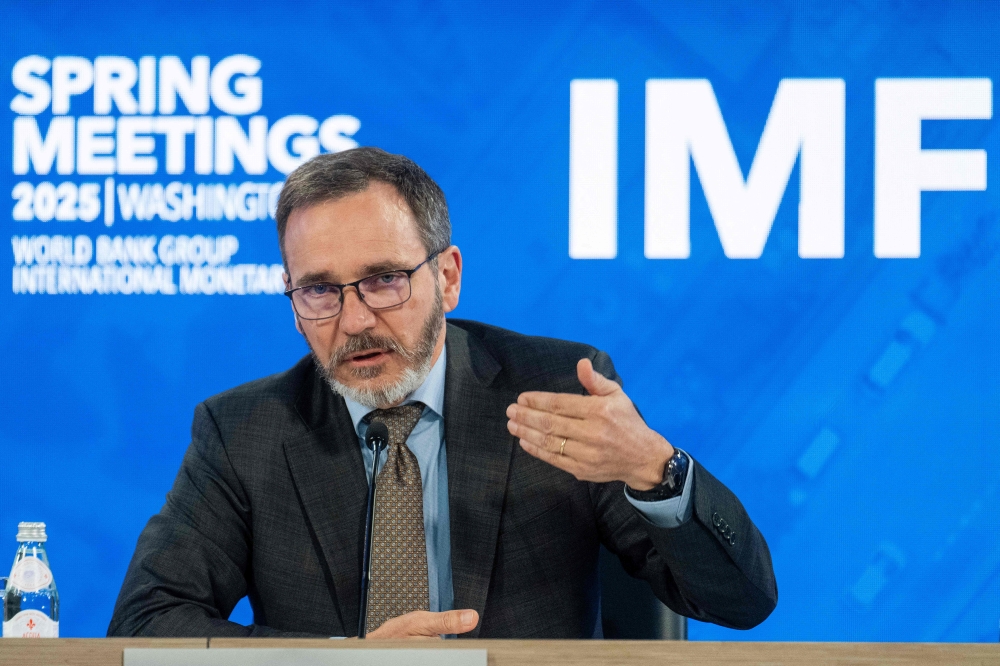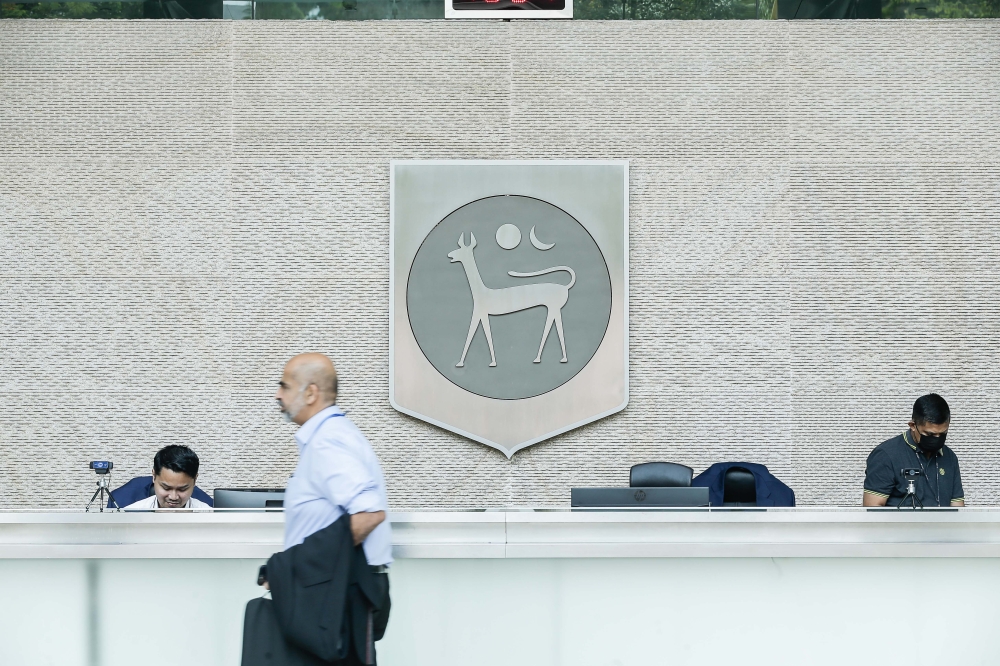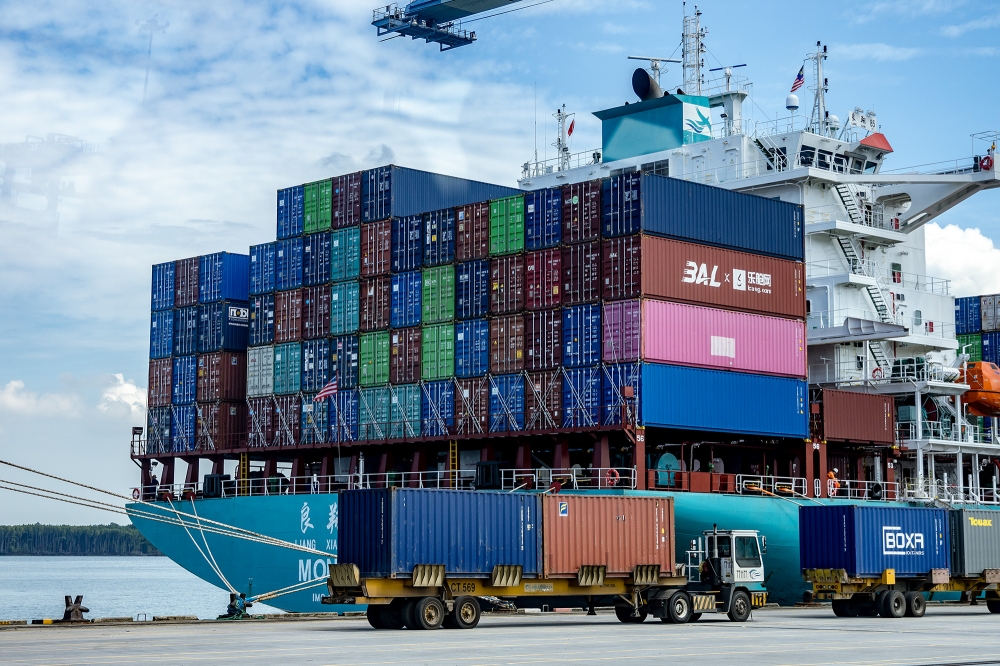WASHINGTON, April 23 — The International Monetary Fund yesterday slashed its forecast for global growth this year and warned of an increase in global financial stability risks, citing the effect of US President Donald Trump’s new tariff policies on the world economy.
The IMF’s projections, which incorporate some but not all tariff measures introduced this year, see the global economy growing by 2.8 per cent this year, 0.5 percentage points lower than the previous World Economic Outlook (WEO) forecast in January.
Global growth is then forecast to hit 3.0 per cent next year, down 0.3 percentage points from January.
“We are entering a new era as the global economic system that has operated for the last 80 years is being reset,” IMF chief economist Pierre-Olivier Gourinchas told reporters in Washington yesterday.
“If sustained, increasing trade tensions and uncertainty will slow global growth,” he added, noting that the recent US tariff announcements had more than halved the Fund’s outlook for global trade growth this year.
The WEO was published as global financial leaders gathered in Washington for the World Bank and IMF Spring Meetings, which are hosted by the two international financial institutions at their headquarters a stone’s throw from the White House.
Given the stop-start nature to Trump’s tariff rollout, the IMF introduced a cutoff date of April 4, meaning they do not include the administration’s latest salvos, which have hiked the level of new levies against China to 145 per cent.
If these policies were to be taken into account and sustained, this could significantly slow global growth, the IMF said.
In a separate report also published yesterday, the Fund warned that Trump’s stop-start tariff rollout had also caused an increase in risks to financial stability.
“Global financial stability risks have increased significantly, driven by tighter global financial conditions and heightened economic uncertainty,” the IMF said in its latest Global Financial Stability Report.
Cooler US growth
In the WEO report, the IMF slashed its outlook for US growth to 1.8 per cent this year — down 0.9 percentage points from January’s forecast.
Growth in the world’s largest economy is then expected to cool further to 1.7 per cent in 2026.
This slowdown was due to “greater policy uncertainty, trade tensions, and softer demand momentum,” the IMF said.
The Fund hiked its inflation forecast for the United States this year to 3.0 per cent, and to 2.5 per cent next year.
It expects tariffs will cause a broader increase in global prices, slightly raising its outlook for world consumer prices to 4.3 per cent for 2025, and to 3.6 per cent in 2026.
Top trading partners suffer
Top US trading partners Mexico, Canada, and China are all predicted to be negatively impacted by the Trump administration’s tariffs.
The IMF expects China, the world’s second-largest economy, to see growth slump to 4.0 per cent this year, down from 5.0 per cent in 2024, with increased government spending failing to counteract the effect of the new levies.
The Mexican economy is now projected to contract by 0.3 per cent this year, a 1.7 percentage-point reduction from January, while Canada’s growth outlook has also been sharply reduced.
Japan, the world’s fourth-largest economy, is expected to grow by just 0.6 per cent this year and next, a sharp cut from January.
Europe’s slowdown deepens
The IMF expects the tariffs to act as a drag on growth in most European countries, with the growth outlook for the euro area cut to 0.8 per cent in 2025, and 1.2 per cent next year.
Germany is now projected to see no growth this year, while the outlooks for France, Britain and Italy have also been pared back.
The one bright spot among the major European economies was Spain, which the Fund upgraded, and now sees 2.5 per cent growth this year.
The Fund sharply downgraded the outlook for the Middle East but still expects economic activity to pick up from 2024, as disruptions to oil production and shipping ease — and the impact of ongoing conflicts lessens.
In sub-Saharan Africa, growth is projected to decline slightly to 3.8 per cent this year, before recovering next year. — AFP






















